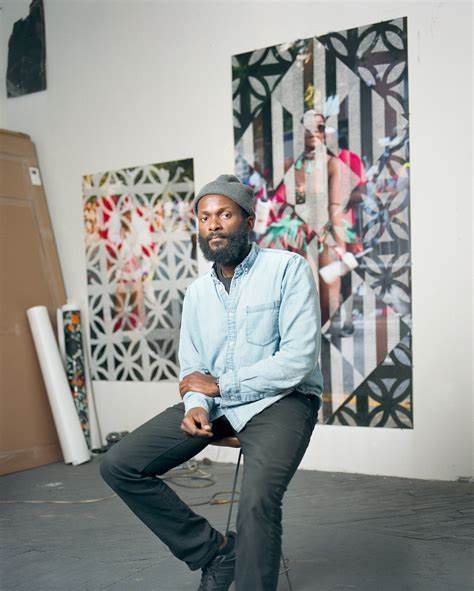
Jack Shainman Gallery is pleased to present Antillean, an exhibition of new work by Paul Anthony Smith, continuing his exploration of how memory, both personal and historical, can shape the present and fragment the past. This body of works stems from photographs Smith made during Carnival festivities in Trinidad and Tobago from 2020 to 2023 — departing from the still images, these paintings combine a documentary technique with that of painterly expression, rupturing time and disrupting photographic continuity in a formal, at times even compositional, way, as he figuratively interprets how we store information and process events as memory.
The Caribbean continues to be a primary subject for Smith, whose interest in the region stems not only from his personal experiences there but also from a critical and historical understanding of the tourism industry, one that has generated a steady and unrelenting influx of visitors to islands that have been transformed by real estate and cultural commodification. The palm trees and placid sunsets that cover postcards, souvenirs, and advertisements are used by Smith to invoke another kind of collective experience with this region, while at the same time underscoring their status as representational clichés. Once seen as such, these forms of commercial imagery seem to function more as vehicles of desire than as transparent symbols of geographical significance.
The use of picotage, so central to previous bodies of work, is now but one technique among several that he uses to push beyond the hard-edged specificity of the photographic image, opting also to blur and distort detail, or to repeat and remove information altogether. Through a process of printing his images on either canvas or linen and then working over the surfaces with acrylic and spray paint, Smith complicates what might otherwise be a smooth translation of photographic information into literal or even symbolic meaning. The added use of picotage to create surface patterns, those which often invoke window grates or breeze blocks, further complicates our ability to “read” these images for concrete information that we might use to inform or educate us. Instead of providing straightforward documentation, Smith’s paintings come to express the levity and communal release of Carnival through increasingly greater degrees of abstraction, revealing something close to the spirit of the multi-day celebration.
With a history dating back to the 1780s, Carnival is today celebrated internationally. From London to New York, from Rotterdam to Montreal, cities on both sides of the Atlantic have developed their iterations of the Caribbean event. For Smith, Carnival remains a vital way to connect with the rich and complex history of the region, while at the same time, so it presents a unique form of communal experience, one steeped in tradition yet receptive to new, contemporary types of subjectivity.
Smith’s photographs from Carnival and specifically J’ouvert, a portion of the event in which participants parade through town adorned with everything from sequined costumes to motor oil and mud, radiate with kaleidoscopic color and collective exuberance. These cinematic details effectively become formal questions in Smith’s paintings through his process of challenging their descriptive clarity, allowing him to reflect on the original photographic image as, in the first instance, merely a vessel of information, a fact perhaps never as salient as during our information-saturated moment in history.


